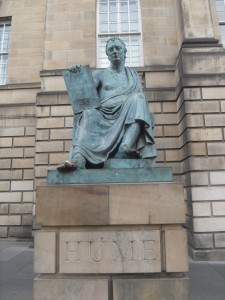 Angus Sinclair was given the longest sentence in UK history after finally being convicted of the murder of two women carried out in 1977 at the World’s End pub in Edinburgh. He is considered to be Scotland’s most prolific killer, and the case has revolutionized the Scottish criminal system.
Angus Sinclair was given the longest sentence in UK history after finally being convicted of the murder of two women carried out in 1977 at the World’s End pub in Edinburgh. He is considered to be Scotland’s most prolific killer, and the case has revolutionized the Scottish criminal system.
After his trial collapsed in 2007, there was such public outcry at his acquittal that it prompted the reform of Scots law of ‘double jeopardy’ – the law preventing a person who has been acquitted of a crime being brought before the courts a second for the same crime.
Double jeopardy is an important legal principle in providing certainty and closure for those accused of a crime and subsequently acquitted. It also is a component of the European Convention on Human Rights (ECHR).
However, Scots law makes an exception to this rule in very limited circumstances, and the Sinclair case has now set a precedent in when deviation from the general legal principle of double jeopardy will be allowed.
In light of the World’s End murder case, this post looks at striking the balance between the rights of the accused and acquitted, and administration of justice.
What does Scots law say about double jeopardy?
In 2011, the Scottish Parliament passed the Double Jeopardy (Scotland) Act. The legislation was first used during the World’s End murder case that demonstrates the rarity of the deviation from the general rule of double jeopardy.
Scotland is actually late to the game in providing exceptions to the double jeopardy rule – years behind England and Wales and Northern Ireland. However similar to other nations, there are significant hurdles for the prosecution to overcome before an acquitted person can be tried for a second time.
The circumstances outlined in the legislation in which an acquitted person may be tried for a second time are:
- Where the acquittal was tainted by an attempt to pervert the course of justice
- Where the accused, after acquittal, admits guilt
- Where new evidence that was not available to the original trial comes to light.
Furthermore, only the most serious crimes such as rape and murder are to be subject to the provisions.
The Law Society of Scotland strongly opposed the governments propositions to make the law retrospective, however MSP’s resisted and closed cases dated before the introduction of the legislation in 2011 are subject to its provisions.
Do the changes to the law strike a balance in rights?
Sinclair had been tried and acquitted in 2007 for the rape and murder of two women and subsequently acquitted when a judge ruled there was no case to answer.
However, the prosecutor at the High Court in Edinburgh had failed to provide forensic evidence vital to the case before the jury.
The case was reopened as a result of forensic evidence linking Sinclair to the crime. One of the most strange things about the case is that while it has remained unsolved for many years – Sinclair was convicted in the latest trial in only two and a half hours.
This is demonstrative of the compelling and irrefutable nature of the evidence brought against him.
It is important that the tests for when an exception to double jeopardy can be brought. Whilst in this case and at the most basic level there seems to be know question of whether to retry a man who was acquitted who had already been convicted of a string of other crimes including murder, the law serves to protect the individual as well as the interests of justice.
It is crucial that individuals who have been tried acquitted of a crime, a truly difficult experience, can rest in the knowledge that their ordeal is over – there must be a sense of finality to court decisions. This may also be important to victims of crimes and their families to allow them to move one and not be subjected to a continual reopening of the case.
However, it is in the public interest to ensure the most dangerous criminals are brought to justice. Hence, the limitation of the double jeopardy legislation to the most serious crimes allows the most prolific criminals to see justice whilst preventing the floodgates opening for minor assaults where a new witness decides to come forward.
Similarly, the limitations on the circumstances in which the double jeopardy rule can be put aside act as an important barrier to cases being reopened.
Another bid for retrial has just been put before the High Court in Edinburgh. The case concerns the murder of Surjit Singh Chhokar who was killed in North Lanarkshire in 1998. Three men were acquitted of his murder.
It will be interesting to see if more cases come forward, how the parameters of when a case can be brought will be drawn. The World’s End case was the first to use the legislation and it was very much in the public interest to do so and with strong evidence that was not available at the previous trial.
However, when the circumstances fall less in favour of reopening the trial, to what extent will the courts defend the rights of the acquitted?



Pingback: Double jeopardy and re-investigation of World’s End murders: Sinclair convicted | CjScotland()